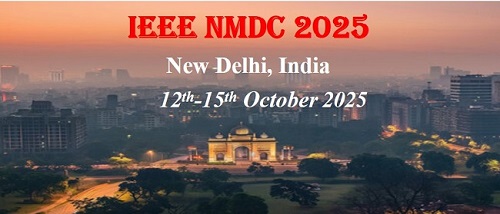Elena A. Rozhkova
Merging Nanotechnology & Synthetic Biology toward Directed Evolution of Energy Materials
Elena A. Rozhkova, Argonne National Laboratory
Abstract:
The biological use of solar energy for synthesis of fuels from water and carbon dioxide inspires researchers and engineers in their efforts to replace exhaustible energy sources with renewable technologies. Eco-friendly photocatalytic energy conversion, known as artificial photosynthesis, along with inorganic materials, also uses biological structures, such as molecules, enzymes, machineries or whole microorganisms that can capture light, break down water, and reduce carbon dioxide and protons. In this talk, I will show that merging nanotechnology, biotechnology and synthetic biology approaches allows for systemic manipulation at the nanoparticle−bio interface toward directed evolution of energy materials, novel environmentally friendly catalytic, “artificial life” systems and, ultimately, to circular economy. For example, purple membranes isolated from Halobacteria or, more recently, obtained via cell-free synthetic biology approaches, were integrated with TiO2 nanoparticles to produce hydrogen or reduce carbon dioxide to value-added chemicals. These new functions are not typical of the host microorganism. On the other hand, interplay between plasmon resonance of noble metal nanostructures and the natural mechanisms of these light-sensitive membranes in the engineered hollow hybrids led to an “artificial cell” capable of photosynthesis of adenosine triphosphate (ATP), a universal energy-carrying biomolecule.
Bio:
 Dr. Rozhkova earned her Ph.D. in Chemistry at the Moscow State Institute for Fine Chemical Technology. She worked in Japan as a Japan Society for Promotion of Science (JSPS) postdoctoral fellow at the Institute of Multidisciplinary Research for Advanced Materials, Tohoku University. After moving to the US in 2003, she became a research staff member at the Chemistry Department of Princeton University, and later she moved to Chicago. Since joining the Center for Nanoscale Materials at Argonne National Laboratory in 2007, Elena has been focusing on a general theme of Nano-Bio Interfaces, one of the most exciting interdisciplinary research fields of our time. Success in this area can lead to the solution of emerging problems of civilization, for example, to provide alternative sustainable energy, to advance medical technologies in the diagnosis and treatment of incurable diseases. Rozhkova is a recipient of JSPS fellowship (2000), Brain Research Foundation Fay/Frank Women’s Council Award (2007), the U. of Chicago Argonne LLC Board of Governors Distinguished Performance Award and a medal (2013), Prof. M. J. Nanjan Fourth Endowment Lecture Award “For outstanding contributions in the field of nano-biotechnology” (2018). She was named an IEEE Nanotechnology Council Distinguished Lecturer 2021.
Dr. Rozhkova earned her Ph.D. in Chemistry at the Moscow State Institute for Fine Chemical Technology. She worked in Japan as a Japan Society for Promotion of Science (JSPS) postdoctoral fellow at the Institute of Multidisciplinary Research for Advanced Materials, Tohoku University. After moving to the US in 2003, she became a research staff member at the Chemistry Department of Princeton University, and later she moved to Chicago. Since joining the Center for Nanoscale Materials at Argonne National Laboratory in 2007, Elena has been focusing on a general theme of Nano-Bio Interfaces, one of the most exciting interdisciplinary research fields of our time. Success in this area can lead to the solution of emerging problems of civilization, for example, to provide alternative sustainable energy, to advance medical technologies in the diagnosis and treatment of incurable diseases. Rozhkova is a recipient of JSPS fellowship (2000), Brain Research Foundation Fay/Frank Women’s Council Award (2007), the U. of Chicago Argonne LLC Board of Governors Distinguished Performance Award and a medal (2013), Prof. M. J. Nanjan Fourth Endowment Lecture Award “For outstanding contributions in the field of nano-biotechnology” (2018). She was named an IEEE Nanotechnology Council Distinguished Lecturer 2021.

